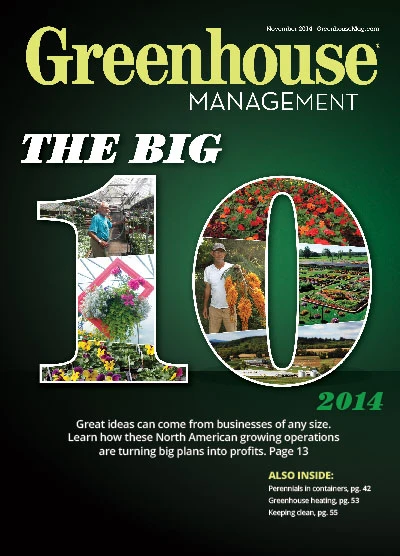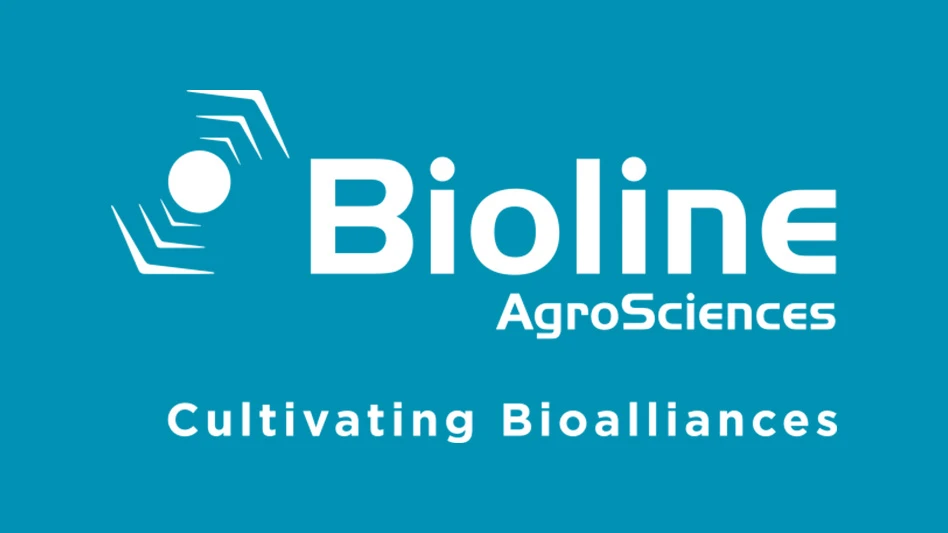 Local is on the lips of growers around the nation. Trendy, chic restaurants are sourcing their vegetables, fruits and herbs from nearby greenhouse growers. Grocers are building rooftop growing facilities atop their stores. Phone apps will help you find local fruit and flowers. It’s a burgeoning trend that could offer huge yields for growers that capitalize on it.
Local is on the lips of growers around the nation. Trendy, chic restaurants are sourcing their vegetables, fruits and herbs from nearby greenhouse growers. Grocers are building rooftop growing facilities atop their stores. Phone apps will help you find local fruit and flowers. It’s a burgeoning trend that could offer huge yields for growers that capitalize on it.
But when you live in an area that could realistically be called an “arctic desert,” how do you capitalize on the local market?
In Fairbanks, Alaska, where Risse Greenhouse and owner Glen Risse are nestled, the average summer temperature is in the low 70s and the average winter temperature is between -5 and -10°F. A local tourism website notes that in July “if it’s sunny, it’s warm and if it’s cloudy, it’s chilly.” It's not the ideal growing climate.
“We have 12 inches of precipitation a year, which is not very much. Most of it comes in the form of snow,” Risse says.
However, it appears that hope and a gardener’s green thumb spring eternal. Even in the wintery rural terrain of Alaska, where scattered townships and cities like Bethel (population: 6,363 according to the U.S. Census Bureau) dot the coast and interior, there are persistent gardeners to be found. And gardeners need plants to garden.
Enter: Risse Greenhouse.
Many of the so-called “Bush” communities — i.e. rural Alaskan towns that are located in difficult to reach areas — have become customers of Risse. Most of Risse’s competition weren't interested in dealing with difficult to reach areas because the shipping costs and logistics become a walking headache.
To encourage businesses to ship to Bush communities, the Fairbanks Economic Development Corporation (FEDC) developed the “Bush Friendly” label, a tag that proclaims a business’ willingness to ship to these remote cities. The FEDC works with the Tanana Chiefs Conference, a collection of tribal leaders who often represent the aforementioned Alaskan cities.
 So how did Risse start working with these communities? “We were approached by the local Tanana Chiefs’ Conference, which is basically a conglomerate of all these villages, their tribal leaders, trying to better their life and keep their kids on the right path. So they came to us and said, 'Hey, we’re having trouble getting stuff out to the Bush. Every time we come out there you’re always really helpful,'” Risse says.
So how did Risse start working with these communities? “We were approached by the local Tanana Chiefs’ Conference, which is basically a conglomerate of all these villages, their tribal leaders, trying to better their life and keep their kids on the right path. So they came to us and said, 'Hey, we’re having trouble getting stuff out to the Bush. Every time we come out there you’re always really helpful,'” Risse says.
After a logistics conversation that included Risse bluntly telling his potential customers that shipping prices would drive up the cost of the product, a partnership was struck.
“We told them how much it’s going to cost them and they’re used to that. They don’t care. When they buy a gallon of milk it’s $6.50. They don’t care. A gallon of gas might be $8. They don’t care. They know that’s how much it costs,” he says.
The company’s desire to do business with rural communities, combined with their outstanding customer service, led to them receiving the “Certified Bush Friendly” label. And the partnership has reaped profits in unexpected ways.
“We’re continuing to offer that service because we’ve found those people eventually come to town and come out here and see what we have and say, ‘Whoa, now I can really shop. Before I was just trying to get some basics. Now I see what you have and set it aside or box it up myself and take it to the airport,'” Risse says.
Those people also buy soil.
One of the other unique facets of Risse Greenhouse is their Triple R Brand soil, a concoction Glen and company brew at their facility. The blend of perlite, peat, manure, and other ingredients is specifically designed to help growers in Alaska’s unique and often unforgiving climate. Glen’s father, the founder of Risse Greenhouse, began selling the soil in 1965, shortly after the founding of the business.
“It’s a pretty special blend. We’ve put in some good slow release materials that will help consumers who maybe forget to water for a week. It’s more of a phosphate-coated, slow release thing, so it releases over time no matter what. The heat doesn’t just bring it out because we don’t have too much heat up here,” Risse says.
The soil is popular with gardeners in urban Fairbanks and in rural Bush communities like Fort Yukon and Bethel. So popular, in fact, that soil sales now represent roughly a tenth of Risse’s sales in any given year.
“Our soil is just a little more forgiving,” he says.
As the company moves into the future, Risse sees potential expansion in the future. He says the company would eventually like to establish a storefront closer to Fairbanks proper.

Explore the November 2014 Issue
Check out more from this issue and find your next story to read.
Latest from Greenhouse Management
- 2025 Proven Winners Horticulture Scholarship applications now open
- How to improve inventory and shipping management in the greenhouse
- Leading Women of Horticulture: Anna Ball, Ball Hort, and Terri McEnaney, Bailey Nurseries
- GM CEA HERB Part 2: A guide to increasing the sowing density of culinary herbs
- GM CEA HERB Part 1: Best practices for producing culinary herbs in controlled environments
- USDA fires experts on invasive pests, including Asian citrus psyllid, chilli thrips
- CEA Alliance celebrates bipartisan introduction of Supporting Innovation in Agriculture Act
- Dümmen Orange North America celebrating 25th anniversary in 2025








